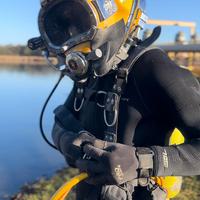My Boat Sunk – Now What?
A sinking boat can happen suddenly and without warning. Whether due to poor maintenance, a significant storm, or an accident, sunken ships don’t necessarily mean all is lost. There is an excellent chance that the sunken boat can be salvaged. Before you hang up your Captain’s hat, here are a few tips you should follow if your watercraft sinks to the bottom of the pond, lake, or river. Remember that your priority should be to get everyone on board accounted for and safely to dry land. It would help to begin thinking about what to do next when everyone is safe.
What Causes Boats to Sink?
Believe it or not, sinking a recreational boat or fishing vessel is not hard. It’s a little too easy. Something as small as an under-floor plastic fitting breaking in half (due to years of engine/water vibrations) can cause a sudden influx of sea or lake water into your boat. Other times, major storms, such as Hurricane Katrina, can cause thousand-mile swaths of destruction. Nothing is safe when the tide and storm surge come rushing at the docks.
Call Your Insurance Company
After your boat sinks, the first thing you should do (after ensuring everyone is safe) is to call your insurance company. If your boat sunk due to a storm, you should know that your insurance company will most likely be swamped with insurance claims. It may take a few weeks for an adjuster to get out to see you. In situations like this, time is money; the longer you wait to salvage your boat, the more damage can occur. Give your insurance company as much information (and pictures) as possible. Your policy will require you to do everything possible to prevent further loss.
What If the Boat Wasn’t Insured?
The clock starts ticking once your boat starts taking on water and sinks to the bottom of the lake or marina. The longer you wait, the higher the chances of severe damage occurring. You will want to get the boat salvaged unless you want to write it off as a total loss. This is where a professional marine salvage company, like American Underwater Services, can mean the difference between a saved vessel and one left on the bottom of the lake. Marine salvage companies have the experience and know-how to get your boat off the bottom of the lake or marina and make it float again. Click here for a slideshow of a boat salvage that took place after a tornado in January 2017.
The Boat Has Been Salvaged – What’s Next?
After a marine salvage company like American Underwater Services has successfully salvaged and floated your vessel, you’ll want to take stock of the damage. Can electronics such as fish finders, GPS, or other nautical navigational tools be removed? If this is the case, and you have homeowner’s insurance (but not boat insurance), your insurance company might cover some or all of the damage. Next, you will want to examine the motor and all associated mechanical parts. Instead of letting everything “air dry,” it’s best to have the boat towed to the nearest boatyard, where the professionals can assess the damage and give you a ballpark figure on what it will take to make her seaworthy again.
How to Avoid Problems in The First Place?
It’s not easy to avoid having your boat sink. Sometimes, you’re just motoring along when you hit a submerged log, causing the craft to suddenly start taking on water. The U.S. Coast Guard suggests that in addition to having life vests on your vessel, equipment such as float-actuated bilge pumps should be replaced long before they fail. This equates to about every 2-3 years. Remember that an ounce of maintenance is worth more than a pound of cure when it comes to boating and keeping your vessel afloat.
Marine Salvage Experts
At American Underwater Services, our expert commercial divers can help you regain vessel possession. Our decades of experience allow us to devise innovative and intelligent solutions that can tackle even the toughest challenges. Call us today at (817) 377-8512 or contact us to learn more about how we can help you.




